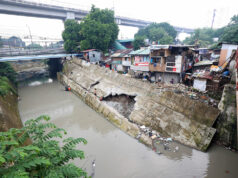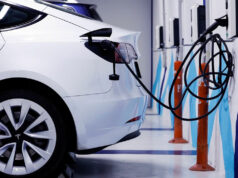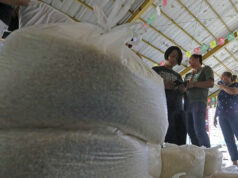THE GOVERNMENT’S provision of relief from higher prices of commodities due to higher taxes will drive the need for a national identification system to ensure that benefits go only to those entitled to them, officials said.

During the Department of Finance’s (DoF) Tax Reform Forum yesterday in Pasig City, called “1 With the 99,” Budget Secretary Benjamin E. Diokno said that the government will ensure that the poor are shielded from the price increase of basic commodities — such as fuel and liquefied petroleum gas — through five measures.
These include the targeted cash transfers for the poor of P200 per month for a year, P2,200 per month per jeepney under the Pantawid Pasada Program, the Pantawid Kuryente Program, loans to operators under the public utility vehicle modernization program, and the social welfare card system.
Mr. Diokno said that the national ID system — which will contain an individual’s personal information and biometrics, and secured with Europay, Mastercard, Visa (EMV) chips — will ensure that the social benefits will only be utilized by entitled individuals.
“The national ID will also function [as a] social welfare card. This will identify the qualified beneficiaries, and discounts of transportation, and health care. This will help us plug the leaks in the social welfare program,” he said.
The national ID — which is still in legislation — has been allotted a P2-billion budget for its implementation next year.
Meanwhile Finance Secretary Carlos G. Dominguez III, the keynote speaker of the forum, said that the tax reform program will shift the tax burden from the poorest 99% of the community, to the wealthiest 1%.
“The reform package will end decades of unjust taxation that polarized wealth rather than distributed it. It will help us build a robust middle class to ensure stability and sustainability in our nation’s progress,” said Mr. Dominguez.
“The proposed tax reform package will end the complex and vulnerable revenue system we have in place. It will ensure that our tax system is simple, just and efficient. It will ensure government a healthy and recurrent revenue flow to fund education, health and other social services. Our human capital, after all, is our biggest asset,” he added.
Finance Secretary Karl Kendrick T. Chua in the same forum said that the tax reform program is not just about raising revenue to plug shortfalls, but to boost investment in the country.
“This tax reform is about investing in our future. We would like to see tax reform address poverty, once and for all. Without the tax reform, the poor will likely remain poor, we will have far less budget for infrastructure, poor quality of education will pervade,” he said.
Other government agencies also took part in the forum to express their backing for tax reform.
National Economic and Development Authority Undersecretary Rosemarie G. Edillon said that the tax reform program will make the country a prosperous, predominantly middle-class society where no one is poor, and that families will “live long and healthy lives, be smart and innovative and live in a high-trust society” by 2040.
“We will need competitive enterprises. It is about leveling up and the Tax Reform program will support the achievement of the Ambisyon Natin 2040,” she said.
The Department of Public Works and Highways (DPWH) for its part said that it envisions to “increase productive capacity of the economy, create jobs, increase our incomes and strengthen investment climate.”
“The tax reform program will sustain the boldest, most ambitious infrastructure program,” said DPWH Undersecretary Maria Catalina E. Cabral.
The Department of Transportation meanwhile said that it targets to build 1,500 kilometers of railways nationwide over the medium term, to decongest highly urbanized areas.
“People are tired….When we say we will build, we will do it. You will get your money’s worth,” said Transportation Undersecretary Reinier Paul R. Yebra.
“Over the next five years, our target is to build around 1,500 kilometer of railways nationwide. This is a huge leap from the current 70 kilometers of railways that we have now,” he added. — Elijah Joseph C. Tubayan



